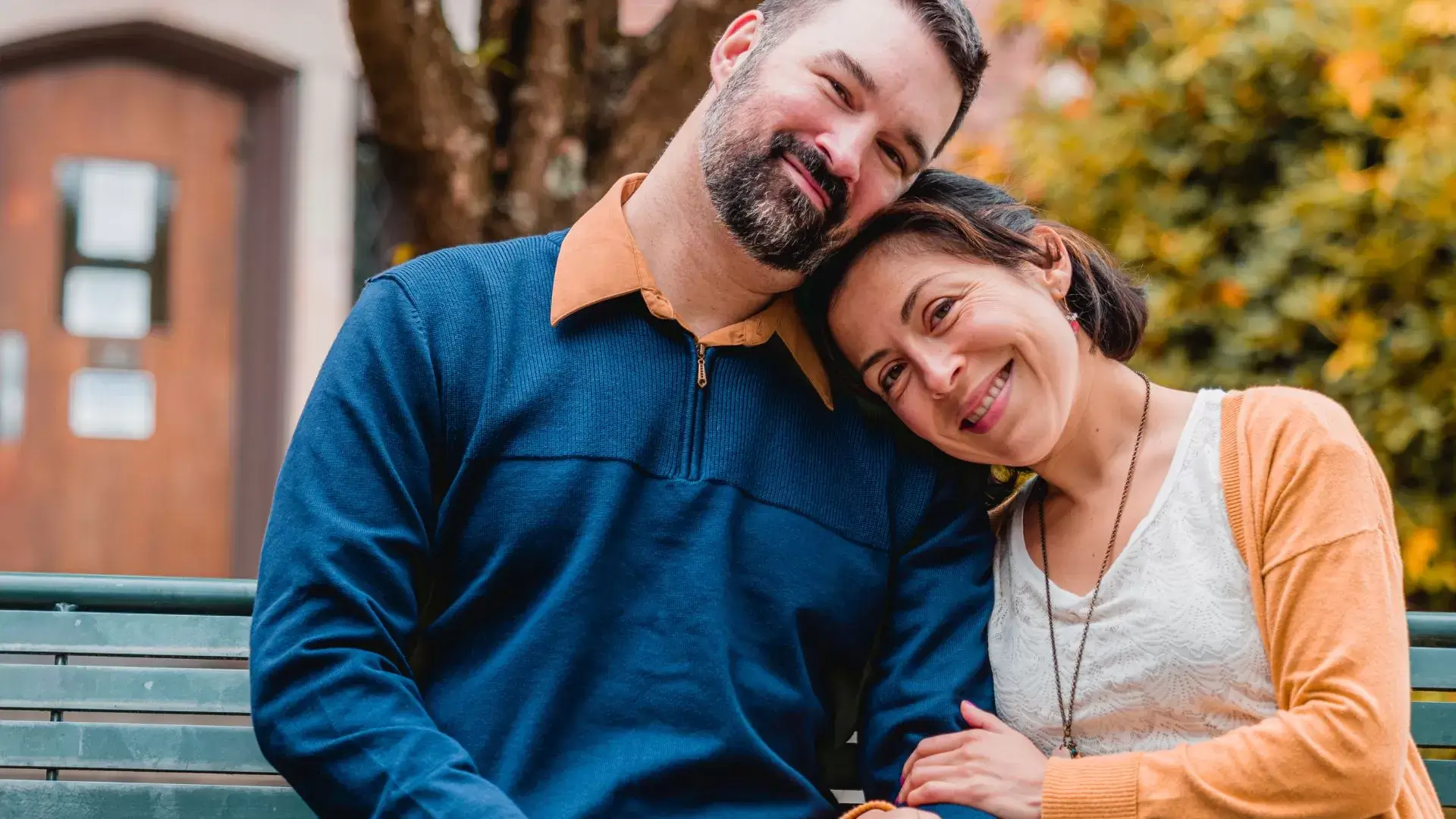We recognize that marriage counseling after an affair is essential for healing and rebuilding trust in our relationship. It provides a safe space for us to express feelings honestly, enabling open communication without judgment. With professional guidance, we can explore the factors that led to the infidelity and address any pre-existing issues that may have contributed. This process encourages vulnerability, helping us rekindle intimacy and connection while fostering accountability and empathy. By working together, we can navigate this challenging time and strengthen our bond, setting the stage for a brighter future. There’s so much more to uncover together.
About Oakville Psychotherapist
In Oakville, our psychotherapist brings a compassionate approach to help couples navigate the complex emotions and challenges that arise after an affair. We recognize that this is a difficult time, filled with pain, confusion, and uncertainty. Our goal is to create a safe space where both partners can express their feelings openly and honestly.
Located at 243 North Service Rd W #106F, Oakville, ON L6M 3E5, our dedicated psychotherapist at Oakville Psychotherapist specializes in relationship healing. By using evidence-based techniques, we strive to foster understanding and communication between partners. We realize that rebuilding trust takes time, and we’re here to support that journey.
During our sessions, we encourage both partners to share their perspectives, ensuring that each voice is heard. This balanced approach not only validates individual feelings but also helps us identify the underlying issues that need addressing. We’re committed to guiding couples toward healthier dynamics, empowering them to reconnect and rebuild their relationship.
If you’re ready to take the next step, don’t hesitate to reach out at (647) 360-5880. Together, we can work toward healing and renewal.
Gaining Insight into the Factors Leading to the Affair
Understanding the factors that contributed to the affair is essential for us to rebuild trust and create a stronger foundation for the relationship. When we examine the reasons behind the betrayal, we open up a pathway to healing. It’s important for us to recognize that the affair often stems from unmet emotional needs or a lack of communication. We might find that stressors in our lives or outside influences clouded our judgment and led us down this path.
By exploring these factors together, we can start to understand not just what happened, but why it happened. This insight allows us to empathize with each other’s feelings and experiences, fostering a safer environment for open dialogue. We can ask ourselves questions: Were there signs we missed? Did we feel disconnected? Acknowledging these elements will help us avoid repeating the same mistakes in the future.
Our goal isn’t to assign blame but to gain clarity. As we work through this process, we can better understand ourselves and each other, paving the way for a renewed commitment to our relationship, built on trust, honesty, and mutual support.

Identifying and Addressing Pre-Existing Issues in the Relationship
Before we can move forward, we need to recognize and address the pre-existing issues within our relationship that may have contributed to the affair. It’s essential for us to take a step back and honestly evaluate our dynamics. Were there unresolved conflicts or unmet needs that we’ve been ignoring? By identifying these underlying problems, we can gain valuable insight into the patterns that led us here.
We should approach this process with empathy, understanding that both of us may have felt vulnerable or disconnected at times. It’s important to create a safe space for open dialogue, allowing us to express our feelings without judgment. Discussing our communication styles, emotional availability, and even external stressors can help illuminate the factors that shaped our relationship.
As we explore these issues, let’s focus on solutions. We can set mutual goals for improvement, whether that involves better communication practices or more quality time together. By addressing these pre-existing challenges, we not only gain clarity but also lay a stronger foundation for healing and growth. Together, we can transform our relationship into one that thrives beyond the pain of the past.
Reigniting Intimacy and Connection After an Affair
Reigniting intimacy and connection after an affair requires us to be vulnerable and committed to rebuilding trust and emotional closeness together. We must acknowledge the pain and betrayal we’ve experienced while recognizing that healing can pave the way for a deeper bond. It’s vital to create a safe space for open communication, where we can express our fears, desires, and needs without judgment.
As we engage in this process, we should focus on small, intentional actions to foster intimacy. Simple gestures like holding hands, shared laughter, or dedicated time together can reignite the spark that may have dimmed. We can explore new activities as a couple, rediscovering what drew us to each other in the first place.
Additionally, patience is important. We can’t rush the healing process; we need to allow ourselves time to grieve and rebuild. Seeking guidance from a marriage counselor can provide us with tools and strategies to navigate these challenging emotions. By actively participating in this journey together, we’ll not only heal but also cultivate a more resilient, intimate relationship that emerges stronger than before.

Healing Childhood Wounds That Impacted the Relationship
Healing childhood wounds that impact our relationship involves recognizing how past experiences shape our emotional responses and interactions with each other. We often find that unresolved issues from our early years can resurface in our relationship, influencing how we communicate and express love. By acknowledging these patterns, we can better understand our triggers and reactions.
In marriage counseling, we can explore how our childhood experiences—whether they stem from family dynamics, trauma, or unmet needs—affect our current behaviors. It is crucial to approach this exploration with empathy, as we’re not just addressing symptoms but the deeper roots of our emotional struggles. Together, we can create a safe space to discuss these wounds, fostering a sense of validation and support.
As we work through these issues, we learn to replace old, harmful patterns with healthier ways of relating to one another. This journey allows us not only to heal individually but also to strengthen our bond. By addressing these childhood wounds, we can pave the way for a more compassionate and understanding relationship, ultimately leading to greater intimacy and connection.
Reflecting on Both Partners' Roles and Responsibilities
As we navigate the aftermath of an affair, it’s essential for both partners to reflect on their roles and responsibilities within the relationship, recognizing how our actions and choices have contributed to the current situation. This reflection isn’t about placing blame but understanding the dynamics that led us here.
We should consider how our emotional needs, communication styles, and coping mechanisms played a part. For instance, did we both prioritize our relationship, or did we let external stressors create distance? Acknowledging these factors can help us see where we missed the mark and how we can improve moving forward.
It’s also crucial to discuss how we each contributed to the emotional landscape of our partnership. Were we both open and honest about our feelings, or did we keep secrets that eroded trust? By examining these aspects together, we can create a safe space for vulnerability and growth.
Ultimately, reflecting on our roles invites accountability and fosters empathy. It allows us to learn from our experiences, paving the way toward healing and a more resilient bond in the future.

Clarifying Personal Goals and Values in the Wake of Infidelity
Clarifying our personal goals and values after infidelity helps us understand what we truly want from our relationship moving forward. As we navigate this difficult time, we need to take a step back and reflect on what matters most to each of us. This process allows us to recognize our own needs, desires, and boundaries, which can sometimes get lost in the turmoil of betrayal.
By openly discussing our individual goals, we can align our visions for the future, ensuring that we’re both on the same page. It’s vital to contemplate not only what we want as a couple but also what we want as individuals. This exploration can reveal whether our values still align or if we’ve grown apart over time.
Engaging in this dialogue fosters honesty and transparency, which are fundamental for healing. We might discover shared goals, such as rebuilding intimacy or committing to open communication, which can guide our journey together. Ultimately, clarifying our personal goals and values paves the way for a healthier relationship, helping us to rebuild a foundation based on mutual understanding and respect.
Rebuilding Trust and Security in the Relationship
With our personal goals and values now clearer, we can focus on rebuilding the trust and security that’s been shaken in our relationship. This journey requires us to approach each other with vulnerability and understanding. Recognizing that both of us have been hurt is essential; we’re not just healing one person but our partnership as a whole.
To start, we need to create an environment where honesty thrives. This means being open about our feelings and fears, even when it’s uncomfortable. We must also establish consistency in our actions; trust grows when we demonstrate reliability over time. It’s important to remember that rebuilding trust isn’t linear; setbacks may happen, and that’s okay. We can view these moments as opportunities to learn rather than failures.
We should also celebrate small victories along the way. Every time we show patience and understanding, we’re actively reinforcing our commitment to one another. By prioritizing our connection and showing empathy, we can gradually restore the security that once defined our relationship. Together, we can transform this challenging chapter into one of renewed strength and deeper intimacy.
Prioritizing Open and Honest Communication
Open and honest communication is essential for us to navigate the complexities of our relationship and rebuild the connection that was lost. By sharing our feelings, fears, and desires, we create a safe space where both partners can express themselves without judgment. This openness fosters understanding and empathy, allowing us to truly hear each other.
We need to recognize that communication isn’t just about talking; it’s equally about listening. When we actively listen, we validate each other’s experiences and feelings. This mutual respect lays the foundation for rebuilding trust and intimacy. We should also avoid assumptions and be willing to ask clarifying questions, ensuring we truly understand one another.
In marriage counseling, we can practice these skills with the guidance of a professional who can help us navigate difficult conversations. It’s important to set aside time for these discussions, free from distractions, where we can focus solely on each other.
Alleviating Symptoms of Psychological Trauma After Infidelity
Healing from the psychological trauma of infidelity requires us to acknowledge our pain and actively seek strategies to cope and rebuild our emotional well-being. The aftermath of an affair can leave us feeling anxious, betrayed, and lost. Recognizing these feelings is the first step toward recovery.
We might benefit from exploring various therapeutic avenues, such as individual counseling or support groups. Sharing our experiences with others who understand can foster a sense of community and validation. Through marriage counseling, we can also identify patterns of behavior that contributed to the infidelity, allowing us to address underlying issues in our relationship.
Establishing healthy coping mechanisms is essential. We should consider practices like mindfulness, journaling, or physical exercise to help manage our emotional turmoil. These activities can serve as outlets for our feelings while promoting a sense of control over our healing process.
Ultimately, as we navigate this challenging journey, it’s important to remember we’re not alone. By leaning on each other and seeking professional help, we can work together to alleviate the symptoms of psychological trauma and rebuild a stronger, more resilient partnership.
Examining the Role of Substances in the Relationship
As we work through the emotional fallout of infidelity, it’s essential to contemplate how substances like alcohol or drugs may have played a role in our relationship dynamics. We often find ourselves in situations where substances can cloud our judgment, leading to choices we might not otherwise make. This can create a cycle of avoidance and escapism, where we turn to substances to cope with our feelings, rather than addressing underlying issues.
Together, we need to analyze our patterns of substance use. Were we using alcohol to escape the reality of our emotional disconnect? Did drugs become a way to numb the pain of unresolved conflicts? By reflecting on these questions, we can identify how substances may have contributed to the infidelity and our overall relationship struggles.
Importantly, we should also consider the impact of our substance use on trust and communication. If we often hid our drinking or drug use, it’s likely that it eroded the foundation of honesty we both need. Through marriage counseling, we can work to address these patterns, fostering healthier coping strategies and nurturing a more supportive environment for our relationship’s healing journey.
Contact us at Registered Psychotherapists in Oakville Ontario
Reaching out to registered psychotherapists in Oakville, Ontario, can provide us with the professional guidance we need to navigate the complexities of our relationship after an affair. It’s crucial to recognize that healing is a process, and having a trained expert by our side can help us work through our feelings, rebuild trust, and foster open communication.
These professionals are equipped to address the emotional turmoil we might be experiencing, whether it’s anger, sadness, or confusion. They can help us understand the underlying issues that led to the affair, allowing us to address them constructively. By engaging in therapy, we can gain insights into our relationship patterns and learn healthier ways to connect with each other.
Additionally, therapists can offer us a safe space to express our emotions without judgment. This support can be invaluable as we learn to navigate difficult conversations and develop empathy for one another. Together, we can work towards rebuilding our relationship stronger than before, fostering a deeper understanding and commitment. So, let’s take that important step and reach out to registered psychotherapists in Oakville. Our journey to healing can begin with just one call. Contact us today!



